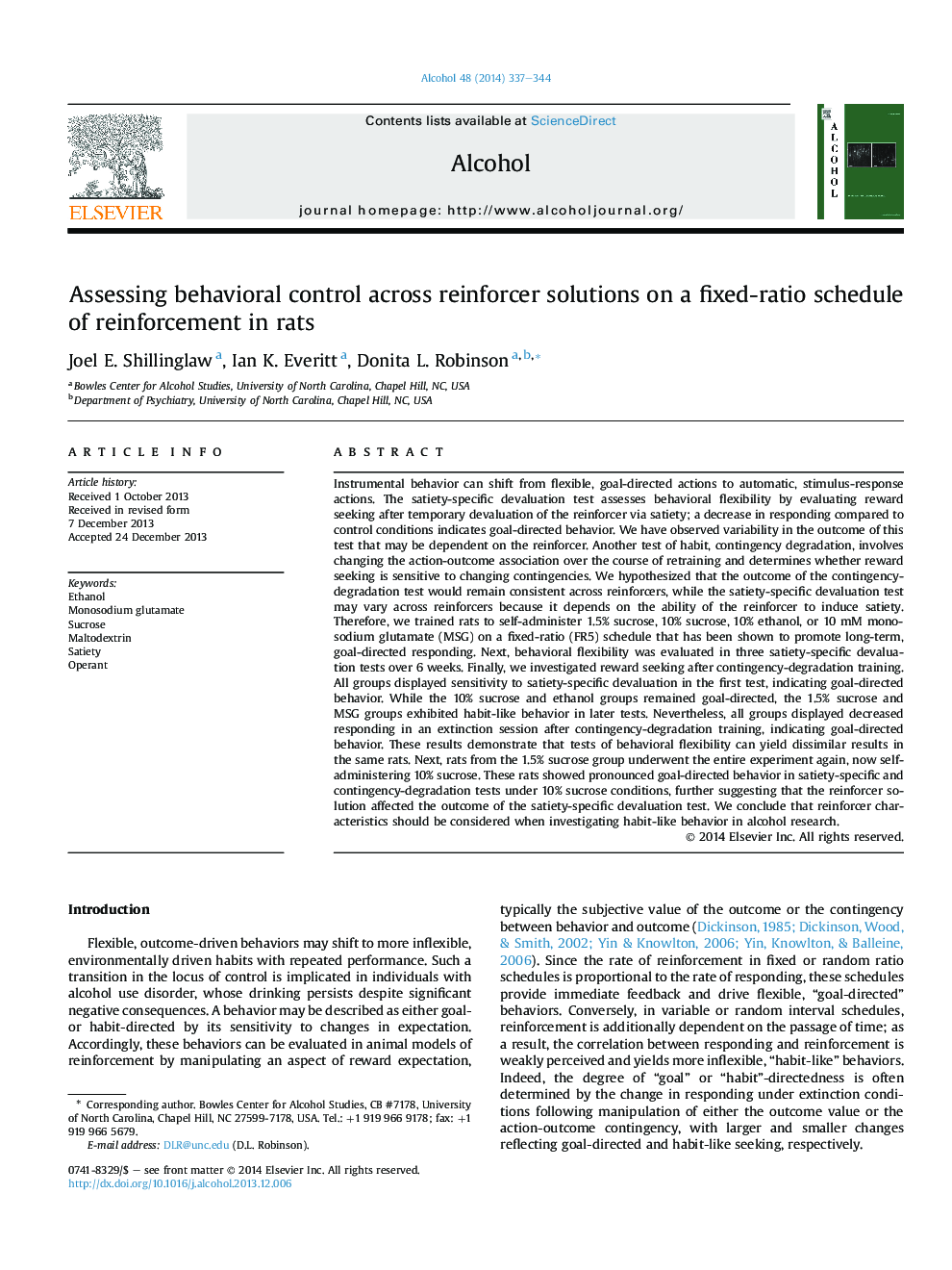| کد مقاله | کد نشریه | سال انتشار | مقاله انگلیسی | نسخه تمام متن |
|---|---|---|---|---|
| 1066874 | 948850 | 2014 | 8 صفحه PDF | دانلود رایگان |
Instrumental behavior can shift from flexible, goal-directed actions to automatic, stimulus-response actions. The satiety-specific devaluation test assesses behavioral flexibility by evaluating reward seeking after temporary devaluation of the reinforcer via satiety; a decrease in responding compared to control conditions indicates goal-directed behavior. We have observed variability in the outcome of this test that may be dependent on the reinforcer. Another test of habit, contingency degradation, involves changing the action-outcome association over the course of retraining and determines whether reward seeking is sensitive to changing contingencies. We hypothesized that the outcome of the contingency-degradation test would remain consistent across reinforcers, while the satiety-specific devaluation test may vary across reinforcers because it depends on the ability of the reinforcer to induce satiety. Therefore, we trained rats to self-administer 1.5% sucrose, 10% sucrose, 10% ethanol, or 10 mM monosodium glutamate (MSG) on a fixed-ratio (FR5) schedule that has been shown to promote long-term, goal-directed responding. Next, behavioral flexibility was evaluated in three satiety-specific devaluation tests over 6 weeks. Finally, we investigated reward seeking after contingency-degradation training. All groups displayed sensitivity to satiety-specific devaluation in the first test, indicating goal-directed behavior. While the 10% sucrose and ethanol groups remained goal-directed, the 1.5% sucrose and MSG groups exhibited habit-like behavior in later tests. Nevertheless, all groups displayed decreased responding in an extinction session after contingency-degradation training, indicating goal-directed behavior. These results demonstrate that tests of behavioral flexibility can yield dissimilar results in the same rats. Next, rats from the 1.5% sucrose group underwent the entire experiment again, now self-administering 10% sucrose. These rats showed pronounced goal-directed behavior in satiety-specific and contingency-degradation tests under 10% sucrose conditions, further suggesting that the reinforcer solution affected the outcome of the satiety-specific devaluation test. We conclude that reinforcer characteristics should be considered when investigating habit-like behavior in alcohol research.
Journal: Alcohol - Volume 48, Issue 4, June 2014, Pages 337–344
